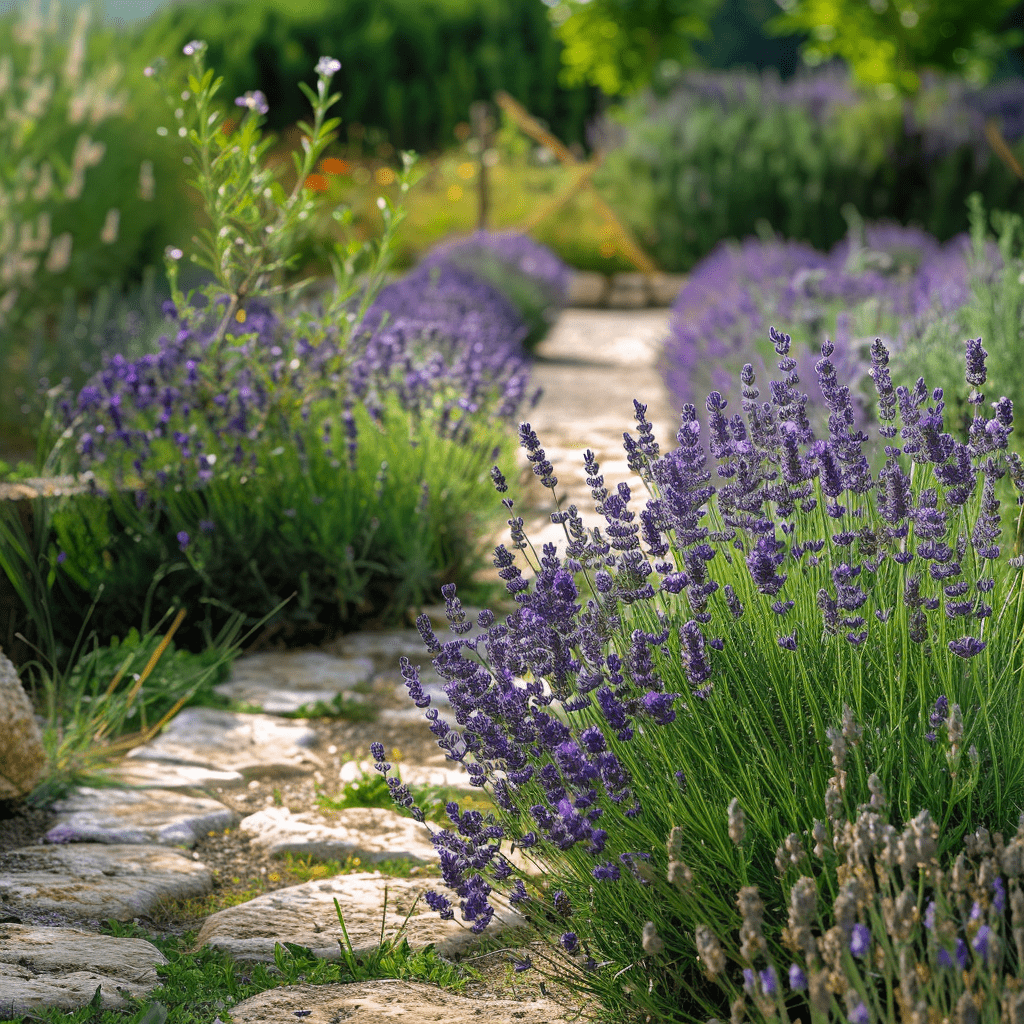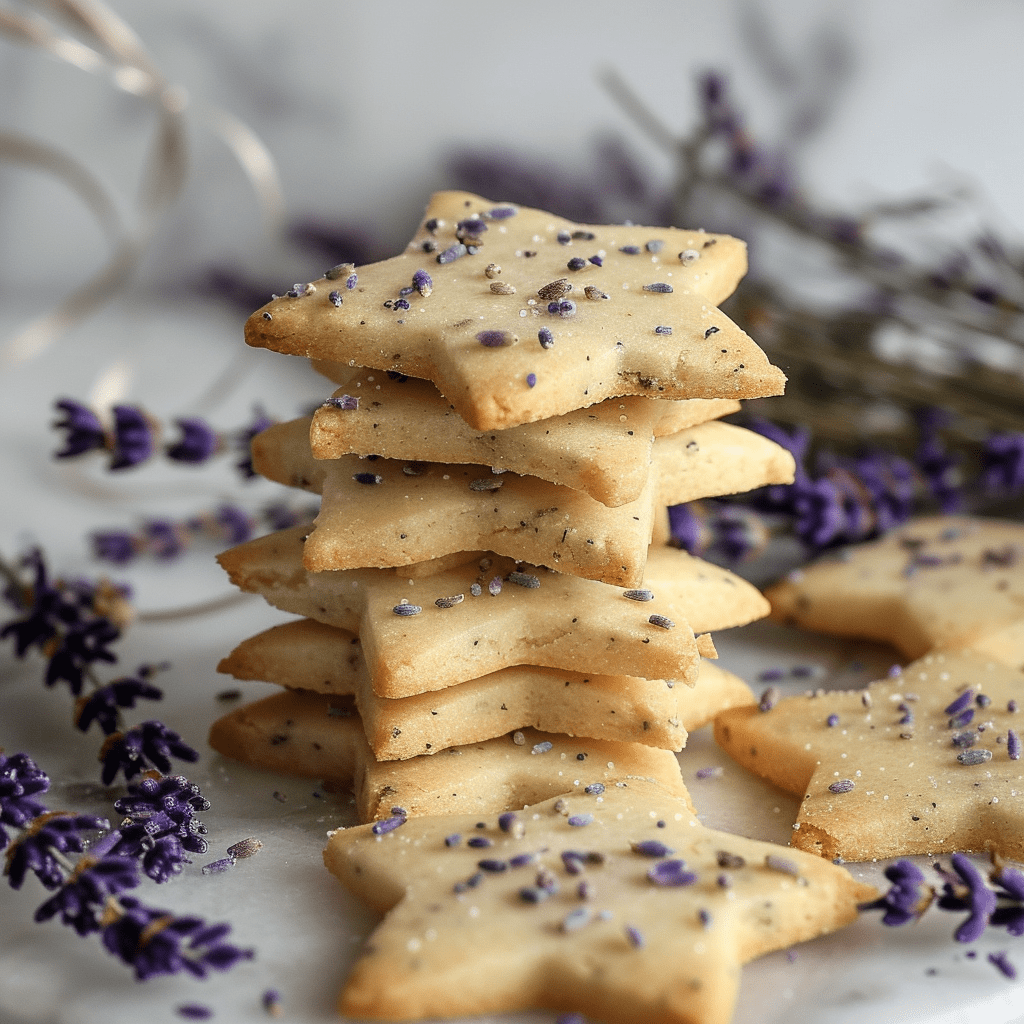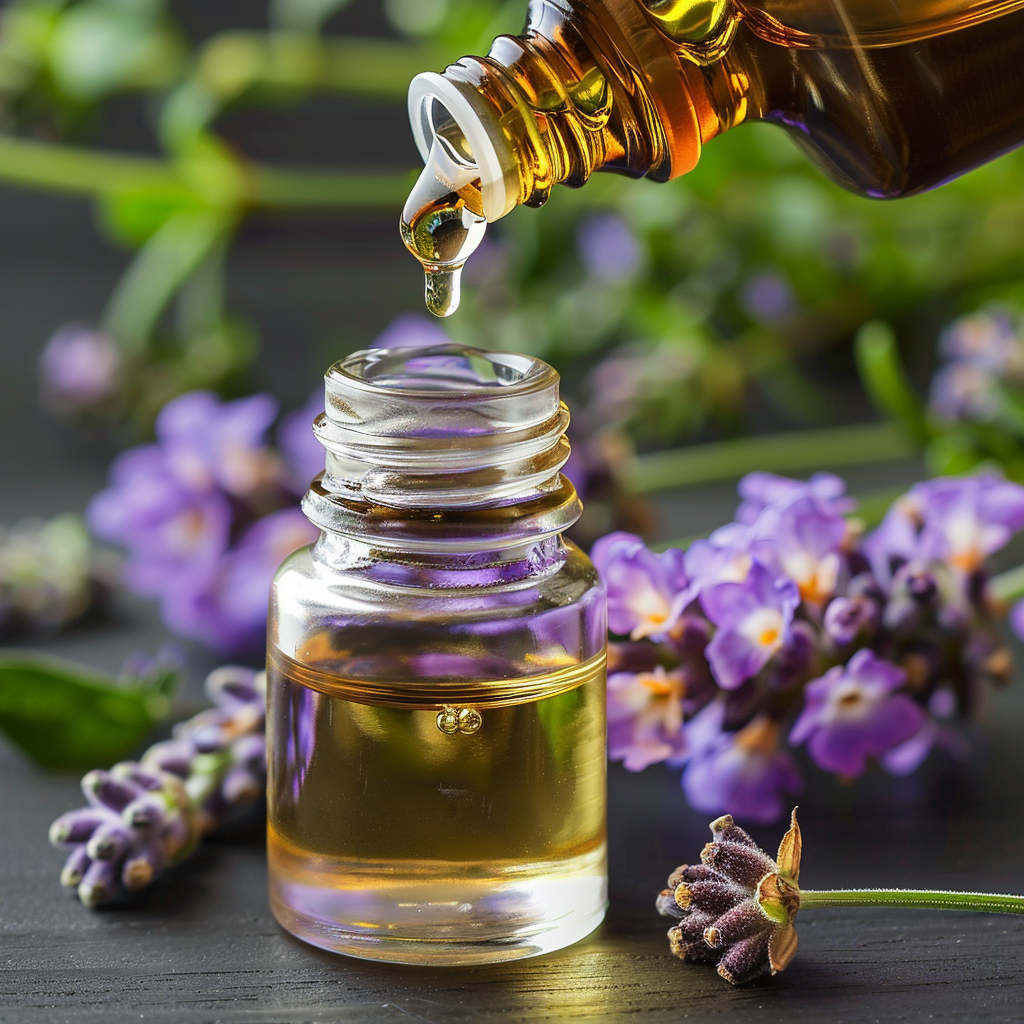FAQ about Lavender - All your Answers to Questions you May Have about Lavender
Our page titled “FAQ about Lavender” (Frequently asked questions) is here to answer all of your burning questions about the spectacular herb known as lavender. From learning how to grow it to understanding its myriad benefits and beyond, this page will serve as your comprehensive resource, with dedicated sections to delve deeper into each topic.
FAQ About Lavender Growing
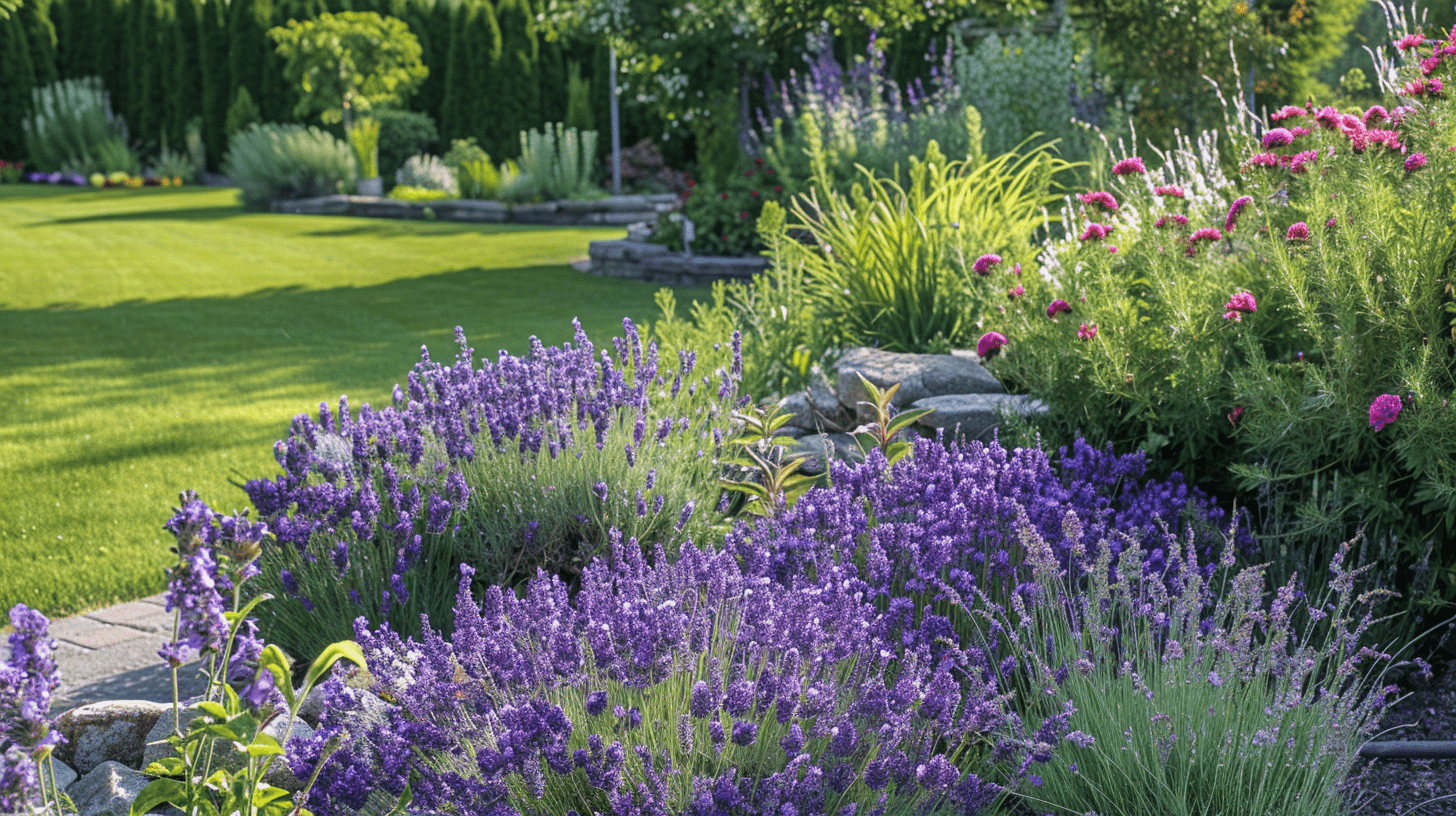
Firstly, let's explore the art of growing lavender. Growing this fragrant herb can seem daunting, especially for novice gardeners, but with the right knowledge, the purple fields of Provence can grace your own backyard. Essential details such as the best soil conditions, optimal sunlight exposure and watering frequency are laid out for you.
Below are the FAQ about lavender to frequently asked questions about cultivating these enchanting plants.
How Big will Lavender Get?
There is no straight answer to this one. How big your lavender will get will depend greatly on the variety you choose to grow and the love and care it gets while it is growing. See our page on how big will lavender get for a more in-depth answer.
How do You Cut Lavender?
You cut lavender on a sunny day after the morning dew. Cut lavender when the lowest flowers on the stem have just begun to open. This timing maximizes both the scent and longevity of the cut flowers.
How do you Prune Lavender?
Pruning is one of the most important maintenance practices for lavenders. Each type may require a different pruning method and regime depending on its species, size, and location. With the right pruning techniques mentioned above, your lavender will thank you for it, bouncing back with a breathtaking and healthier bloom year after year. Remember, pruning is not strictly a science but an art. Feeling the connection to the plant can guide you to know how much to prune intuitively.
How Long does Lavender Last?
The long lavender will last depends on how it's being used—whether you're referring to the lifespan of lavender plants, the durability of cut lavender in a vase, or the shelf life of dried lavender. Lavender plants will last 10-15 years in your garden under ideal conditions. Lavender if dried correctly will last several years. The fresh flowers will last 1 - 2 weeks, and essential lavender oil, if stored correctly will have a shelf life of 4 - 5 years.
What can you Plant with Lavender as Companion Plants?
Lavender companion planting is so useful due to its delightful scent and ability to attract beneficial insects while deterring pests. You can plant anything with lavender that has the same growing conditions. Other herbs go well with lavender like rosemary and sage. Also planting with flowers like Bee Balm give a lovely color contract. You can also plant it in the orchard and vegetable garden to deter pests as a companion plant.
Is Lavender a Spring Flower?
Lavender is typically considered a perennial herb, which means it grows year-round in suitable climates. It's not exclusively a spring flower - some varieties bloom right through to early fall, but it certainly has significant growth and some varieties bloom from early spring. The blooming period varies depending on factors such as the specific lavender variety, climate, and growing conditions.
What are the Best Conditions for Growing Lavender?
Thriving in full sun and well-drained soil, lavender loves alkaline conditions and minimal fertilization. It's a plant that favors hot, dry climates but can adapt to various environmental conditions if cared for properly.
When is the Best Time to Plant Lavender?
Timing can vary depending on your climate zone; however, early spring or late fall are generally the best times to plant lavender to allow roots to establish without the stress of extreme temperatures.
How Much should Lavender be Watered?
Once established, lavender needs little water and is quite drought-resistant. It's crucial to ensure the soil dries out between watering to prevent root rot and other water-related issues.
FAQ About Lavender's Pests and Diseases
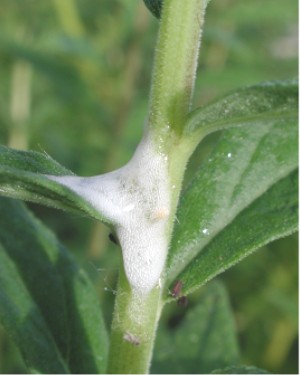
Lavender is relatively resilient but can be susceptible to fungal diseases and pests such as aphids and spittle bugs. Ensuring good air circulation and proper planting density can help mitigate these issues.
Detailed guides on each topic provide more insights and practical tips for successfully growing lavender in your garden.
Some More Answers to your Growing Lavender Questions
See our page on how to grow lavender for further information.
FAQ About Lavender's Benefits
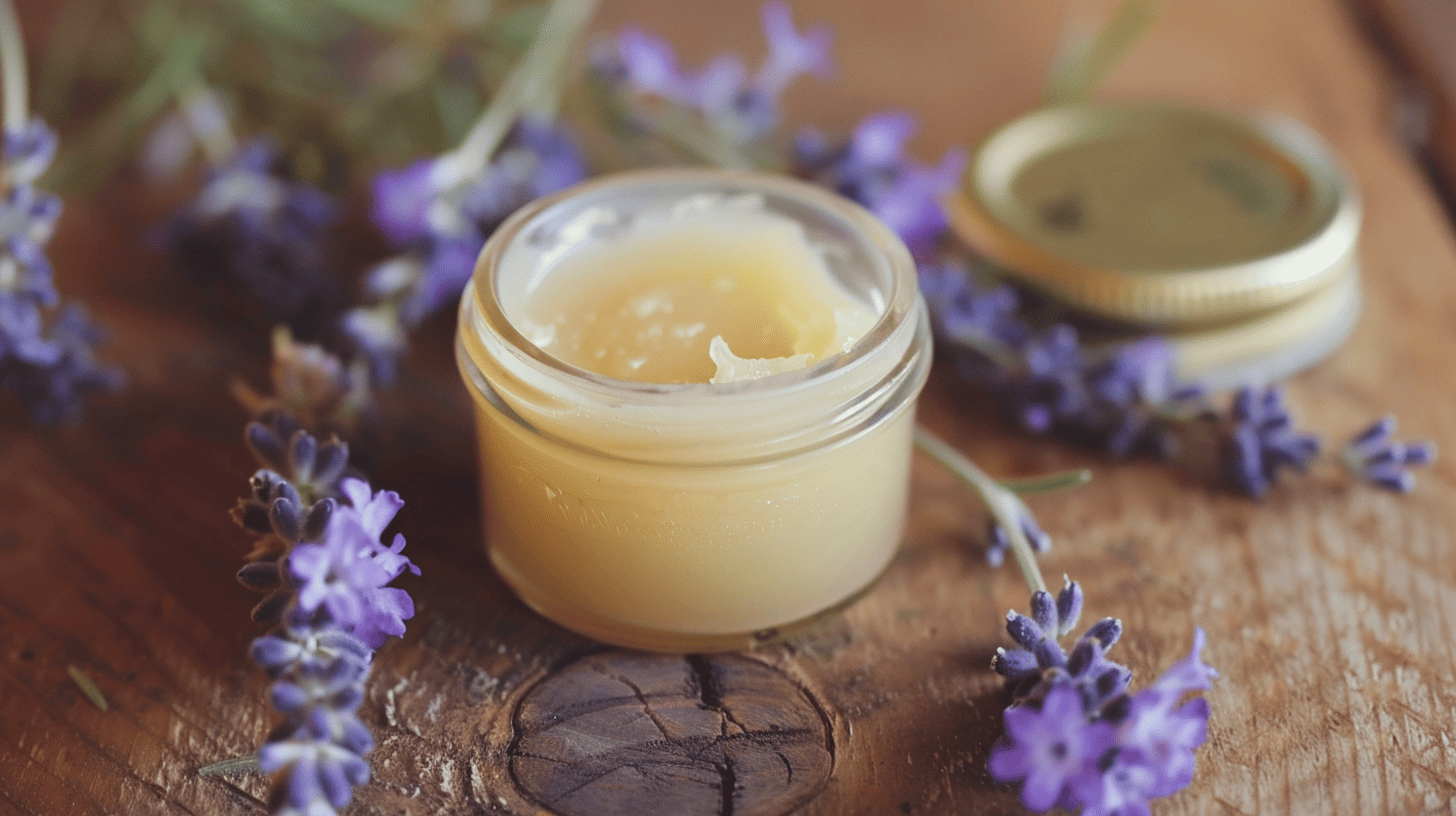
Beyond its aesthetic appeal, lavender is renowned for its therapeutic qualities. Here are some of the most appreciated benefits.
Does Lavender Help you Sleep?
Absolutely! For centuries, people have turned to lavender as a natural remedy to soothe the mind and body, promoting a restful night's sleep and a sense of tranquility.One of the most notable benefits of lavender is its ability to induce relaxation and reduce stress and anxiety. Known for its natural sedative properties, lavender is a favorite for promoting better sleep. It’s often used in bedtime rituals in various forms, from essential oils to dried lavender under the pillow.
Is Lavender Good for Skin?
Lavender is indeed good for the skin, offering a wide range of therapeutic benefits that can help promote clearer, healthier, and more radiant skin. From its anti-inflammatory and antimicrobial properties to its antioxidant-rich profile and stress-relieving effects, lavender is a versatile botanical powerhouse that deserves a place in your skincare routine.
Lavender is indeed good for the hair, offering a range of benefits that can help promote healthy, beautiful locks. From stimulating hair growth and combating dandruff to conditioning the hair and soothing the scalp, lavender oil is a versatile botanical powerhouse that deserves a place in your hair care routine. Lavender water is also beneficial to the hair and scalp.
What are the Benefits of Lavender Oil?
Lavender oil is a versatile and potent essential oil that offers a wide range of benefits for physical, mental, and emotional health. Whether used in aromatherapy, skincare, hair care, or respiratory health, lavender oil can help promote relaxation, alleviate pain, soothe skin irritations, and enhance overall well-being. With its soothing aroma and therapeutic properties, lavender oil is a valuable addition to any natural health and wellness routine.
Why Have I had an Allergic Reaction to Lavender?
Unfortunately, a small number of people are allergic to lavender of have a bad reaction to it. This might be from the pollen, the plant itself or the essential oil. Symptoms may be mild to severe, and there are a number of readily available treatments and home remedies to counteract the reaction.
Is Lavender Safe for Cats and Dogs?
Yes, and no. It depends on what varieties you have in your garden, how much your cat or dog has ingested, and what has been ingested.
What is Lavender Good for?
Lavender is a useful plant with so many uses that are good for not only your health; it is good for skin and hair, but also for your mental health, your home as a cleaning product, a decorative element, for making your house smell beautifully, and also as an interesting addition to your baking and cooking.
See more in-depth articles on our benefits of lavender page which offer more extensive information on how lavender can contribute to your health and wellness.
FAQ About Lavender Cooking and Homemade Products
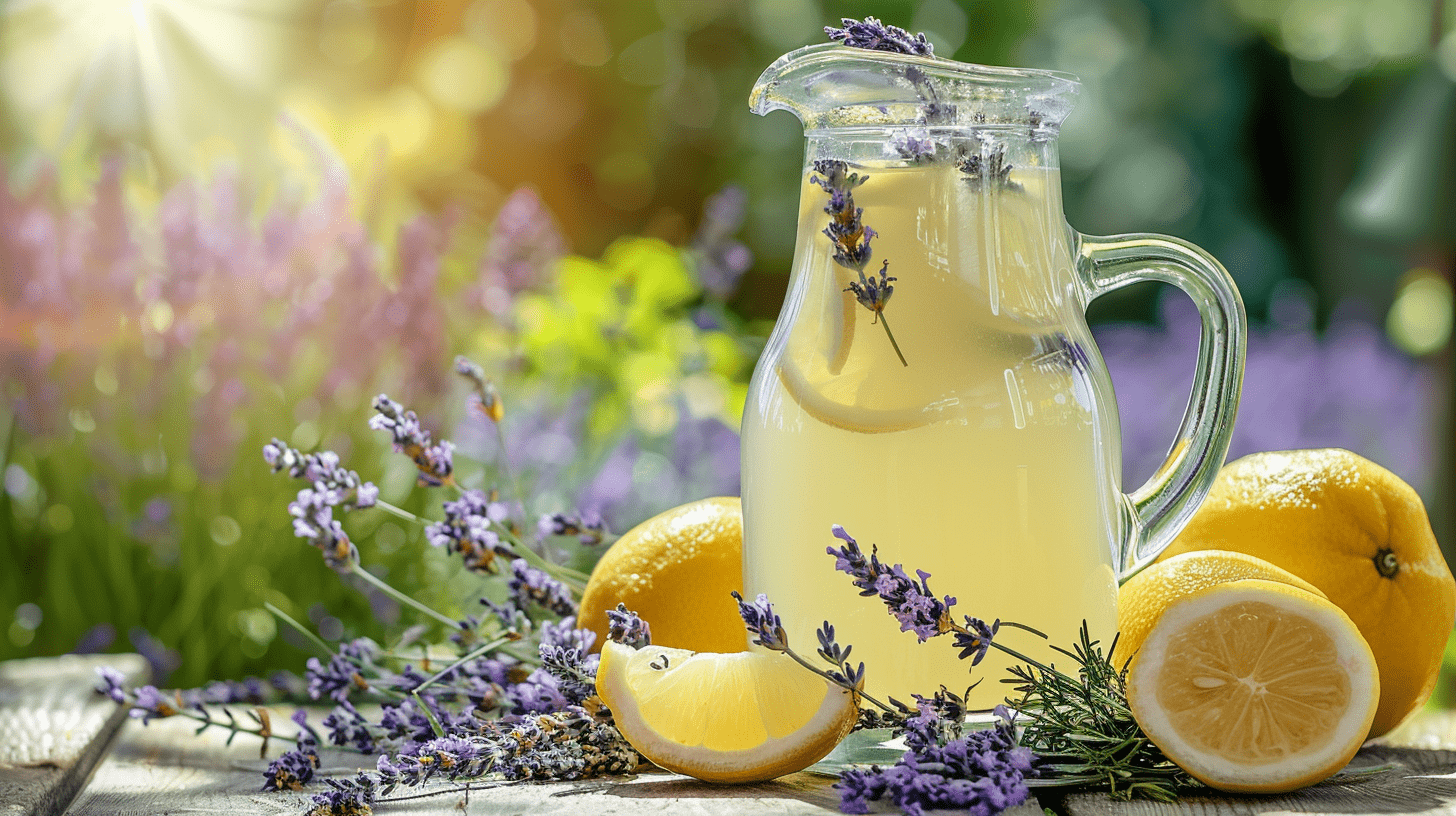
Lavender’s utility spans culinary applications, crafting, and home care, making it a beloved addition to many households.
How can I Use Lavender in Cooking?
From sipping it in your tea, indulging in a lavender-flavored ice-cream, or savoring a hearty lavender-infused meal, cooking with lavender can make every dish an unforgettable experience. Its unique flavor and aroma make it an excellent addition to both your kitchen and garden. Lavender lemonade on a summer's day is sublime, and making lavender sugar to add to cookies and breakfasts is so simple to make. So, don’t wait – start experimenting with this wonderful herb and bask in the glory of your unique culinary creations!
How do you Make Lavender Essential Oil?
You can make the essential oil in two ways, it just depends on what equipment you have available to you at the time. The simplest method is to use the flower buds in conjunction a carrier oil and leave it to steep over a period of time. The other is to use a small copper distiller which will give you a much stronger and superior essential oil.
Can you Make Lavender Tea?
Absolutely you can! You only need some dried culinary-grade lavender buds and some hot water. If you want to add some honey or sugar as a sweetener you can. But there are some cautions. So read the article to see what they are and a recipe for making lavender tea.
How can Lavender be Used as Cleaning Products in the Home?
Utilize lavender’s antiseptic qualities in DIY cleaning products or simply place dried lavender around the home for a natural, chemical-free air freshener that also repels insects. We have 8 recipes for making your own homemade cleaning products.
Further exploration into the uses of lavender can be found on our website, where extensive guides and tutorials await. Each section is designed to inspire and inform, providing detailed answers and creative ideas to enhance your experience with this remarkable herb. Whether you're cultivating your garden, exploring natural remedies, or embarking on aromatic adventures, our comprehensive resource is here to guide you.
More Answers to your Questions.
Hi! I've planted some lavender in pots and now I'm wondering if they are going to grow too big for the containers they are in. Just how big does lavender grow?
Hi! I've planted some lavender in pots and now I'm wondering if they are going to grow too big for the containers they are in. Just how big does lavender grow?
Lavender can be grown very successfully in pots, as long as you are growing varieties that are known as 'dwarf' lavender that won't grow more than 12 inches or so. We have an article entitled: How big will lavender get? that covers your concerns. Happy gardening!
Do you have a recipe for lavender sugar?
Do you have a recipe for lavender sugar?
Yes, we do actually. We have a great recipe with step-by-step instructions on how to make it and how long it will store for. Have fun making it. You can find the recipe here: How to Make Lavender Sugar.
Is Lavender Easy to Grow?
Is Lavender Easy to Grow?
Luckily, the answer is yes, it is! It is one of those plants that you can pretty much neglect in your garden and it will bloom year after year. Lavender is easy to grow but there are some conditions that should be met to make your lavender growing success.
